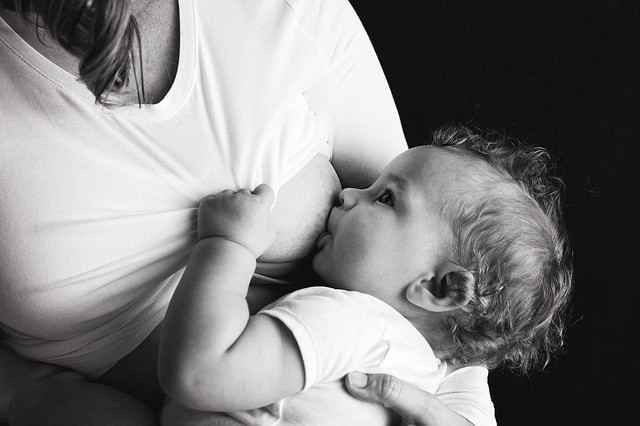5 Interesting Ways Breastfeeding Changes Your Body

One of the most distinct characteristics which makes mammals, including human beings, special is breastfeeding. According to research, breastfeeding provides babies with proteins that stimulate against allergies and eczema. Moreover, breastmilk facilitates the effectivity of vaccines and make babies smarter. For mothers like you, breastfeeding reduces your risk of having Type 2 Diabetes and certain cancers such as breast cancer. But the most beneficial thing about breastfeeding is that it strengthens your bond with your children. Nothing completes motherhood than bearing a child and being able to raise them happy and healthy.
For first time moms, you might notice several changes in your body while breastfeeding. But there's nothing to worry about that because they're completely normal and experienced by many other breastfeeding moms.
Here are five ways breastfeeding changes your body according to Mitu:
1. While you breastfeed, your body releases oxytocin and prolactin, the feel-good hormones.
While breastfeeding your baby is an emotional experience in itself, the emotions you feel is actually caused by the flood of oxytocin, which is your body's natural way of ensuring you want to breastfeed. When you breastfeed, your body also releases casomorphin, which has a sedative effect on your baby. This phenomenon happens in body to solidify the bonding experience between you and your baby. And with the surge of emotions comes mood dips when moms stop breastfeeding.
At the point of weaning, or the period when a mom finally stops from breastfeeding, you might suffer from hormonal mood swing. You might find yourself crying over a petty reason or getting grumpy and then high on some point. Although normal, it can still some problems. One way to help avoid severe mood dip from happening is by weaning very slowly because when you stop breastfeeding abruptly, it might feel like whiplash to your body, which has been flooded with feel-good hormones for months.
2. You lose 5 to 10 percent of your bone mass within the first six months of breastfeeding.
Mara Horwitz, an associate professor of endocrinology in University of Pittsburgh, says that, in order to ensure the baby is getting enough calcium, the body takes it directly from the mother's own bones. Talk about how amazing motherhood could be!
3. You have a higher risk of gum disease.
The loss of estrogen that is typically there to protect your bones is one of the hormonal changes that your body undergoes while you're pregnant. When you give birth and start breastfeeding, your body will experience lack of calcium which leads to an increase in risk for gum disease. There are many ways to combat this lack of calcium. Your OB might prescribe a calcium supplement but in your own ways, you can find many sources so that you can take at least 1,000 milligrams of calcium daily such as dark leafy vegetables, fortified orange juice or fortified almond milk.
The good thing about this is the longer you breastfeed, the stronger, healthier bones you would have. According to a 2012 study by Osteoporosis International, women who breastfeed for 33 months or longer are found to have stronger, larger bones than moms with less than 12 months of breastfeeding.
4. Your boobs are about to hurt way more often.
When your boobs start to ache, it is more often an indication that it's feeding time for your little one. To help with milk flow, you can take a warm shower before nursing and apply cool compresses to your breasts between feedings to ease the pain.
5. You may notice hard, marble-sized lumps in your breasts.
Nothing to be alarmed at because this is normal. For those who's still breastfeeding, it may be a clogged milk duct, and can be eased by massaging the area as you breastfeed until that side goes dry but if you've already weaned, it's an indication that your body absorbing its own milk.
Giving birth and having to breastfeed a child is considered a miracle by many. While breastfeeding has its pains, it is a worthwhile experience for you and your child. Cherish it while you can.
Subscribe to Latin Post!
Sign up for our free newsletter for the Latest coverage!
© 2026 Latin Post. All rights reserved. Do not reproduce without permission.















